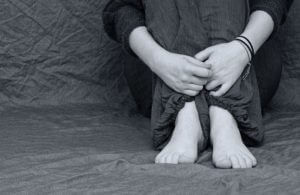
For someone diagnosed with post-traumatic stress disorder – PTSD – some days are better than others. PTSD can result from any number of traumatic events, some deeply embedded from decades ago, others more like fresh wounds. One thing is for sure, PTSD not only affects the person who has experienced trauma, but those who love or care for that person too often experience pain and fear alongside their loved one. And in many cases, while the person experiencing symptoms has many avenues for help, family members may feel like they are fighting their battle alone.
For those with PTSD…
PTSD can happen with a bang or a whimper. Anyone who has experienced a traumatic event, whether it is witnessing an accident, going to war, surviving abuse, or compartmentalizing years of pain and fear. Some open up about their trauma, seeking help through therapy and sometimes, medication to help navigate some of the more frightening times. Others may seek refuge in a hobby or activity, and some keep their pain bottled up inside or turn to drugs or alcohol to numb the pain. No matter the cause or effect, anyone living with PTSD has options for care, but they must seek out the options. They need to help themselves get through the pain and trauma. They can live life as it should be lived; free of pain and painful memories.
…and their Loved Ones
While there may be no way to fully understand the trauma their loved one has experienced, for family members and friends of someone with PTSD, the effects of that trauma can present differently. For them, time too often is spent helping their loved ones avoid triggers and triggering situations. That may mean “Scripting” scenarios, ensuring certain words, phrases, sensations, and even people are downplayed or omitted from everyday life, which over time becomes a series of choreographed events. In theory, of course, everything is done out of love, but in reality, there is an element of fear and dread, knowing their loved one could be triggered at any moment. This is not only exhausting but can backfire, making the loved one feel as if they are to blame for any outbursts or episodes.
An Illness, not a stigma
Once one accepts that PTSD is not a sign of weakness, but rather, a psychological disorder that can present in many physical ways, including night sweats and terrors, avoidance, rapid heartbeat, dilated eyes, shallow breathing, and even chronic pain, then help may be easier to come by. It’s important to remember, however, that these symptoms and manifestations may start to permeate loved ones and caregivers, causing that person to start to feel the effects of their trauma and stress.
In-home therapy
For those whose loved ones have PTSD, there is a bright side, and you are not alone. If you live in Manhattan, treatment is closer than you think. In fact, in your own home, is a very good place to start on the road to wellness. Home-based therapy by a qualified mental health provider like Dr. Raymond Zakhari provides a comfort level rarely found in an office setting. There’s natural ease of communicating on your terms, on your turf. Any stigma judgment is absent, providing you and your loved ones the opportunity to pursue treatment that is both effective and discreet.
If you live or work in Manhattan and are looking for a medical professional who can care for both your physical and psychological health, then Dr. Raymond Zakhari may be right for you. He makes medical house calls in Manhattan focused on relationship-based primary and mental health care. If you are looking for discreet, total medical care, call Dr. Zakhari at Metro Medical Direct at (917) 484-2709 or request an appointment online. You’ll be happy you took that first step to a new kind of care experience.
Also, check out Dr. Raymond Zakhari’s Podcast The Psychology of it All here. Also available on Apple Podcasts.

0 Comments